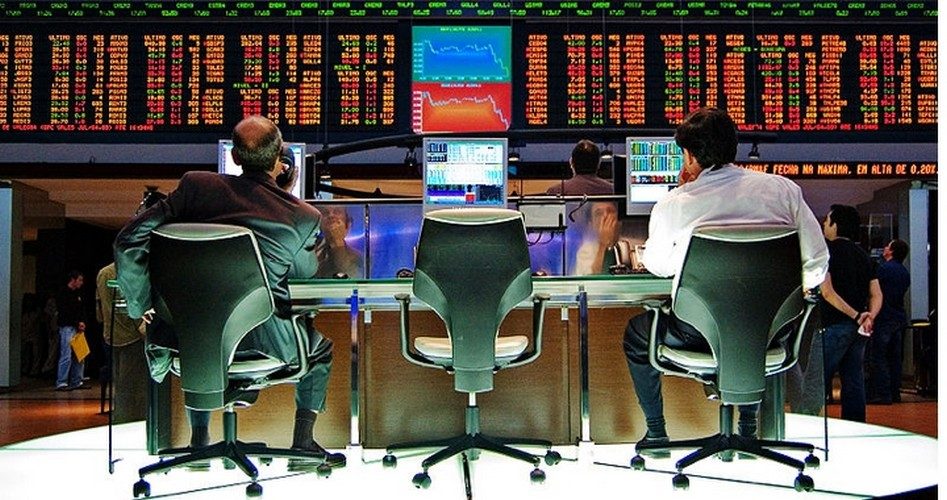
Brazilians are facing a bleak future. The combination of last week’s downgrade of the country’s government debt to junk, along with downgrades on the debt of many of its major industries, and the unfolding “Operation Car Wash” scandal at Petrobras (the massive government-owned oil company), all spell trouble for an economy already in decline.
Brazil’s currency, the real, was once pegged to the dollar, but excessive spending by the Marxist governments of Lula da Silva from 2003 to 2011, followed by his protégé, Dilma Rousseff, have caused the real to lose a third of its value against the dollar just since the first of the year. This has pushed inflation to double digits, soon to be followed by unemployment. Estimates are that the country’s present economic weakness has cost 500,000 jobs, with total losses by the end of 2016 expected to reach 2.5 million.
A decade ago an analyst with Goldman Sachs was so impressed with Lula’s relatively light touch and Brazil’s impressive natural resources that he coined the term BRIC — Brazil, Russia, India, and China — to describe the rising economic stars in the global economy, even predicting that they would overtake the developed companies of the world in a few years.
{modulepos inner_text_ad}
But as governments in those countries increased their determination to control their economies and transfer wealth from entrepreneurs who earned it to those who didn’t, it was just a matter of time before their economies would falter.
Add corruption to the mix, and while Brazil’s present decline is already shocking, employment is likely to reach historic lows. When Rousseff ran for reelection last fall, one of her promises was “to supercharge the economy while avoiding the corruption and mismanagement that have plagued over oil-rich countries in the developing world.” It turns out that she had personal and intimate knowledge of just such corruption while serving as chairman of Petrobras, at one moment in time the fourth-largest company in the world when measured by market capitalization.
In September 2010, the company reported the discovery of two immense oil fields, the Tupi in the Santos Basin, and the Juniper just off the coast of Rio de Janeiro. At the same time it announced a public offering of shares in order to raise the capital needed to develop them, selling $70 billion of new shares. In addition it launched a bond program, which increased its debt load between December 2013 and October 2014 by $25 billion, to $170 billion.
This made Petrobras the most indebted company in the world, according to Merrill Lynch, and put in place a scandal of money laundering and influence buying that some are saying will be the worst in Brazil’s notorious history: some $22 billion. More than 230 prominent politicians in Rousseff’s administration and at the highest levels of the company are being investigated, with 57 of them already arrested and 46 indicted.
The problem for Rousseff is that, while this was going on, she was serving as the chairman of the board of Petrobras. Although she claimed ignorance, citizens don’t believe her, and have staged massive rallies expressing their outrage.
The scandal is called “Operation Car Wash,” so named because one of the enablers of the scam involved a currency exchange and money transfer service at the Tower Gas Station in Brasilia. Others involved included businessman Hermes Magnus, the owner of a maker of electronic components, who blew the whistle when he discovered attempts to use his company in money laundering and payoffs to politicians. The investigation turned up not just one but four large criminal rings that were involved.
So devastating was the revelation that Petrobras was forced to delay reporting on its annual financial results for 2014, and when they were finally released last April, they showed a write-down of almost $17 billion, owing not only to graft but also to the overvalued assets including Tupi and Juniper. Petrobras is also suspending its dividend payments for 2015, further impacting its stock price, which once traded at $77 a share and now is at just over $4.
After enduring seven different currencies since 1942, Brazilian citizens are suffering once again as prices continue to soar, thanks to the central banks’ flailing efforts to stimulate the moribund economy.
The corruption that is staggering the economy isn’t just concentrated in Rousseff’s administration, either. The month before she took office in January 2011, politicians voted themselves a raise — to an average salary of $210,000 — in a country where the per capita income is under $16,000. When Rousseff presented the legislators with a bill to cut government spending modestly, they refused to even consider it seriously.
Edmar Bacha, one of the “fathers” of the Real Plan developed in the 1990s that ignited Brazil’s economic growth spurt, has decried the destruction not only of his plan but of his country’s economy, thanks to interventions by the government and manipulations of the currency by the central bank: “I am disillusioned and upset with what’s happening,” he declared. “All the work that we did to create the real, to create stability, was destroyed [by the government].”
As the Petrobras scandal widens and deepens, Rousseff’s approval ratings have dropped to single digits, and calls for her impeachment are increasing. But even if she is impeached and removed from office, the underlying problems facing Brazil would still remain: central bank manipulations, government interventions in what’s left of the private market, and rampant corruption.
As investment advisor Mish Shedlock noted, the solution is simple, just not easy:
The only thing that will stabilize the real [and the country] is sound economic policy and a stable government.
Until then, this is no question: interventions will fail.
And so will Brazil’s economy.
Photo of Brazil stock market: Rafael Matsunaga
A graduate of an Ivy League school and a former investment advisor, Bob is a regular contributor to The New American magazine and blogs frequently at www.LightFromTheRight.com, primarily on economics and politics.
Related article:



